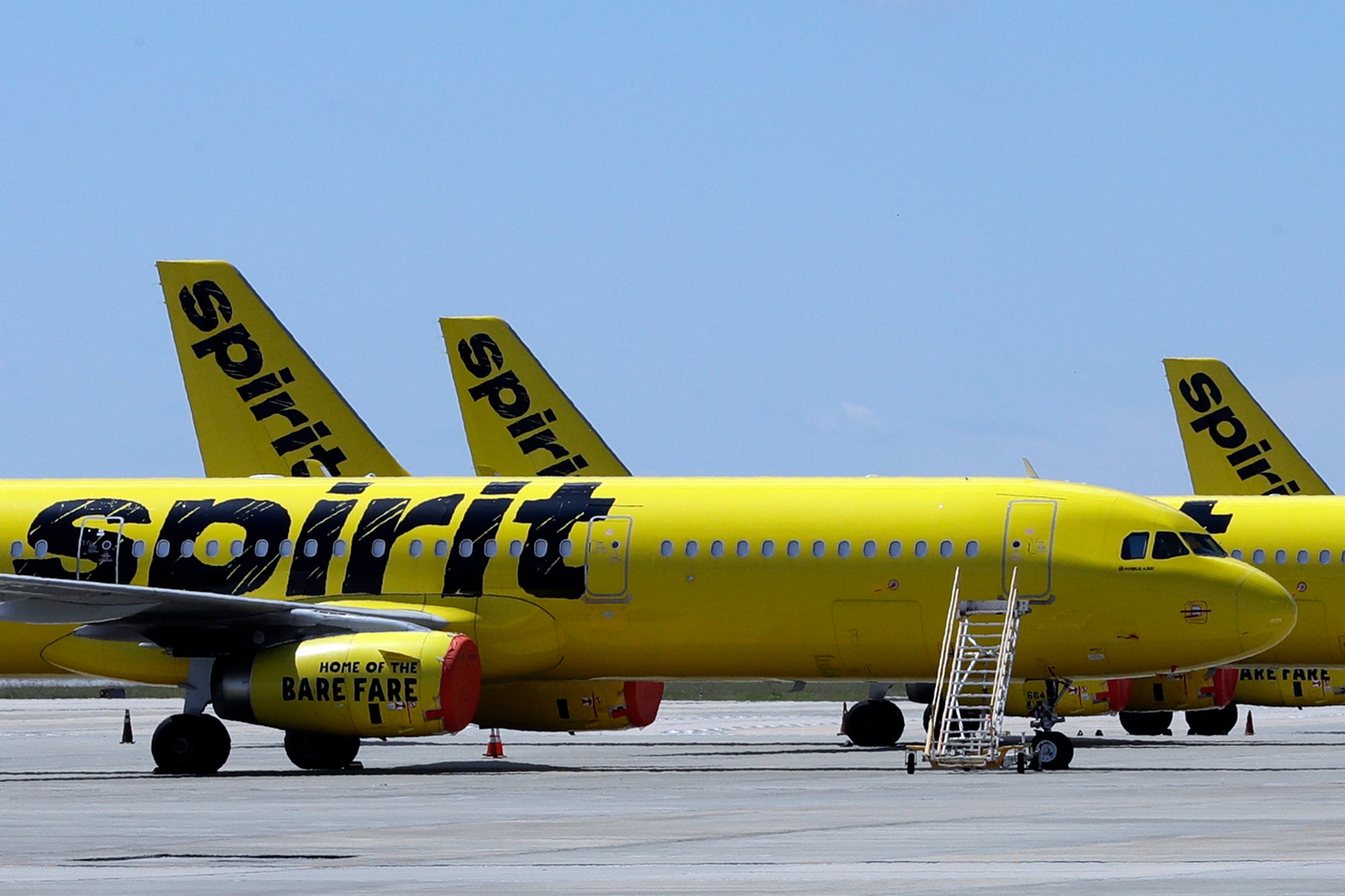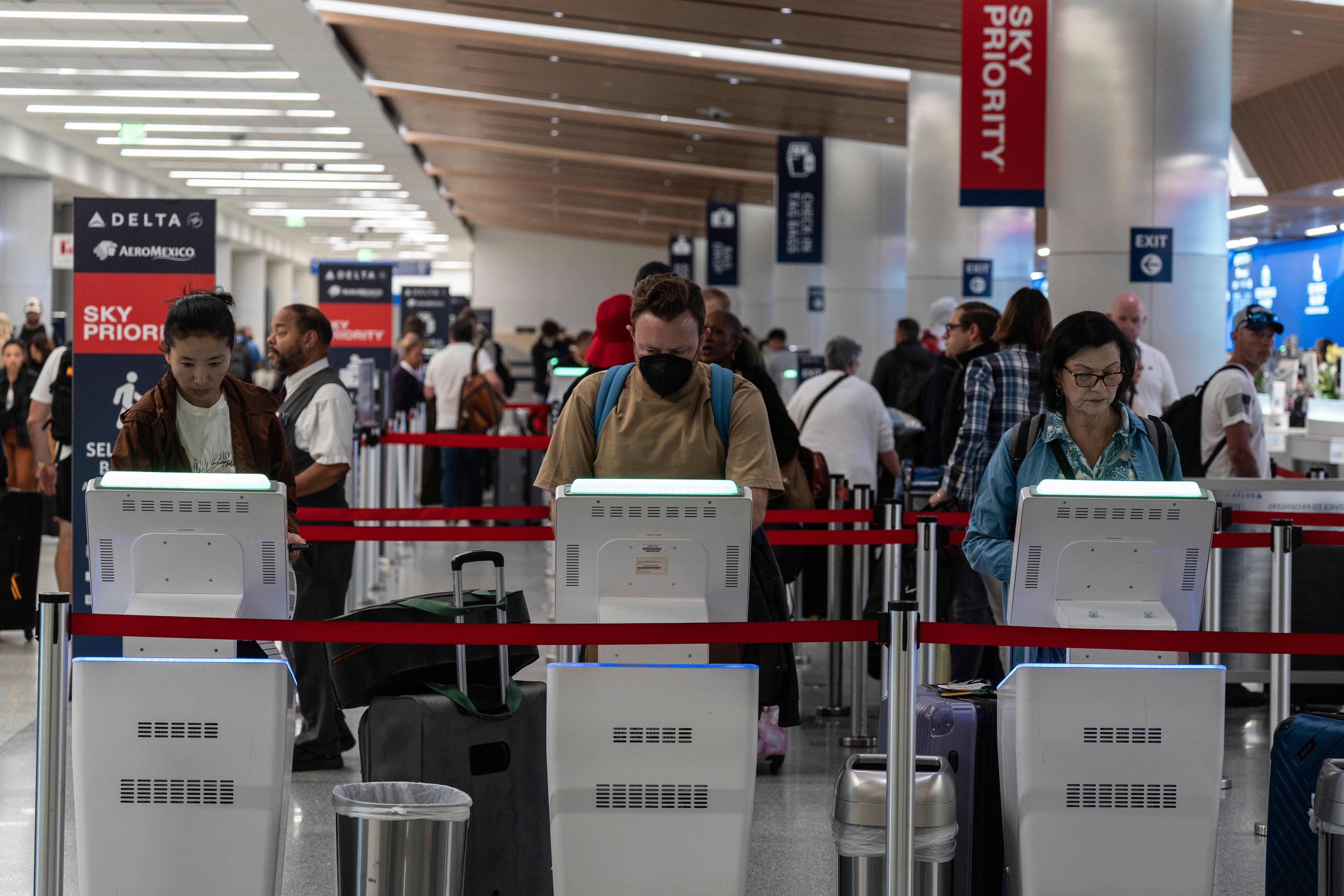Fire warning issued as airline passengers ignore safety rule
Overheating incidents rose 28% from 2019 to 2023

Your support helps us to tell the story
From reproductive rights to climate change to Big Tech, The Independent is on the ground when the story is developing. Whether it's investigating the financials of Elon Musk's pro-Trump PAC or producing our latest documentary, 'The A Word', which shines a light on the American women fighting for reproductive rights, we know how important it is to parse out the facts from the messaging.
At such a critical moment in US history, we need reporters on the ground. Your donation allows us to keep sending journalists to speak to both sides of the story.
The Independent is trusted by Americans across the entire political spectrum. And unlike many other quality news outlets, we choose not to lock Americans out of our reporting and analysis with paywalls. We believe quality journalism should be available to everyone, paid for by those who can afford it.
Your support makes all the difference.Devices powered by lithium-ion batteries are overheating on flights, raising fears over fires, a new report has said.
E-cigarettes overheated more often than any other device, based on reports from 35 airlines, according to the report.
More than one-quarter of passengers surveyed for the study said they put vaping cigarettes and portable chargers in checked bags. That is against U.S federal rules.
Overheating incidents rose 28% from 2019 to 2023, although such events remain relatively rare, UL Standards said in a report released Monday.
In 60% of the cases, the overheating — called thermal runaway — happened near the seat of the passenger who brought the device on board.
In July, a smoking laptop in a passenger’s bag led to the evacuation of a plane awaiting takeoff at San Francisco International Airport. Last year, a flight from Dallas to Orlando, Florida, made an emergency landing in Jacksonville, Florida, after a battery caught fire in an overhead bin.

The Transportation Security Administration prohibits e-cigarettes and chargers and power banks with lithium-ion batteries in checked bags but allows them in carry-on bags. The rule exists precisely because fires in the cargo hold might be harder to detect and extinguish.
UL Standards, a division of UL Solutions Inc., a safety-science company previously known as Underwriters Laboratories, based its findings on data from 35 passenger and cargo airlines including almost all the leading U.S. carriers.
The Federal Aviation Administration reports 37 thermal-runaway incidents on planes this year, through Aug. 15. There were a 77 reports last year, a 71% increase over 2019, according to the FAA numbers.
Considering that airlines operate about 180,000 U.S. flights each week, incidents in the air are relatively uncommon, and lithium batteries can overheat anywhere.
“We also know that one of these thermal-runaway incidents at 40,000 feet does present unique risks,” said UL’s David Wroth.
Those risks have been known for many years.
After cargo planes carrying loads of lithium-ion batteries crashed in 2010 and 2011, the United Nations' aviation organization considered restricting such shipments but rejected tougher standards. Opponents, including airlines, argued that the decision on whether to accept battery shipments should be left up to the carriers, and some no longer take bulk battery shipments.
The most common lithium-ion-powered devices on planes are phones, laptops, wireless headphones and tablets. About 35% of reported overheating incidents involved e-cigarettes, and 16% involved power banks.
UL Standards, a division of UL Solutions Inc., a safety-science company previously known as Underwriters Laboratories, based its findings on voluntary reports from 35 passenger and cargo airlines including almost all the leading U.S. carriers.